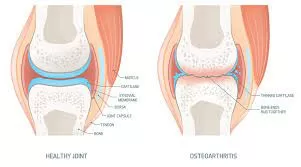New research sheds light on the intricate relationship between gut microbiota and inflammatory diseases like rheumatoid arthritis, offering potential insights into novel therapeutic approaches. The study, led by researchers at the University of Colorado, US, highlights the role of tryptophan breakdown in the gut and its impact on immune responses.
Tryptophan, a common compound found in protein-rich foods such as meat and dairy products, serves as a crucial building block for various physiological processes in the body. However, how tryptophan is metabolized in the gut microbiome plays a pivotal role in modulating inflammatory pathways.
According to Kristine Kuhn, Head of the Division of Rheumatology at the University of Colorado and co-author of the study, the breakdown of tryptophan by gut cells influences the production of either anti-inflammatory or pro-inflammatory byproducts. While body cells produce anti-inflammatory compounds, bacterial cells generate indoles, triggering the production of inflammatory T-cells.
The type of diet individuals consume significantly influences this process, with plant-based fiber-rich diets promoting anti-inflammatory pathways, while typical Western diets lean towards inflammatory responses.
The study, published in the Journal of Clinical Investigation, builds upon previous research linking changes in gut microbiota to increased production of indoles in patients with inflammatory conditions like spondyloarthritis and rheumatoid arthritis.
In experiments involving mice, researchers observed that antibiotics treatment to deplete gut microbiota prevented the onset of arthritis and reduced indole levels. Similarly, mice fed a low-tryptophan diet showed decreased arthritis susceptibility due to the inhibition of indole production.
The findings suggest that targeting indole production pathways could offer potential therapeutic avenues for treating rheumatoid arthritis and spondyloarthritis. By manipulating intestinal bacteria to favor anti-inflammatory pathways, researchers hope to restore balance and mitigate the progression of inflammatory diseases.
As the research advances, the team aims to explore strategies to tip the balance towards anti-inflammatory pathways, paving the way for innovative approaches in arthritis management. The study underscores the critical role of gut health in immune regulation and opens new avenues for precision medicine in treating inflammatory diseases.












